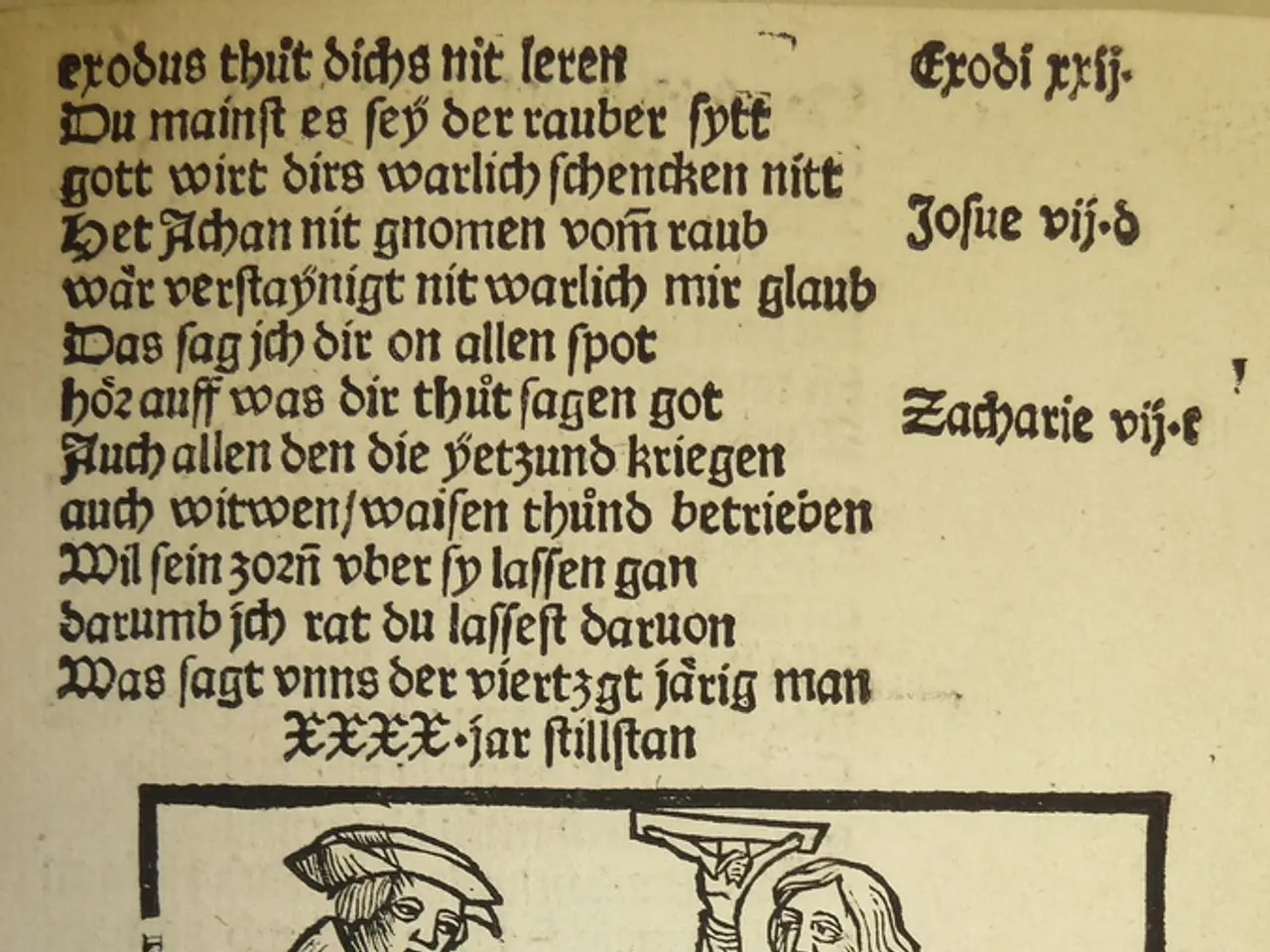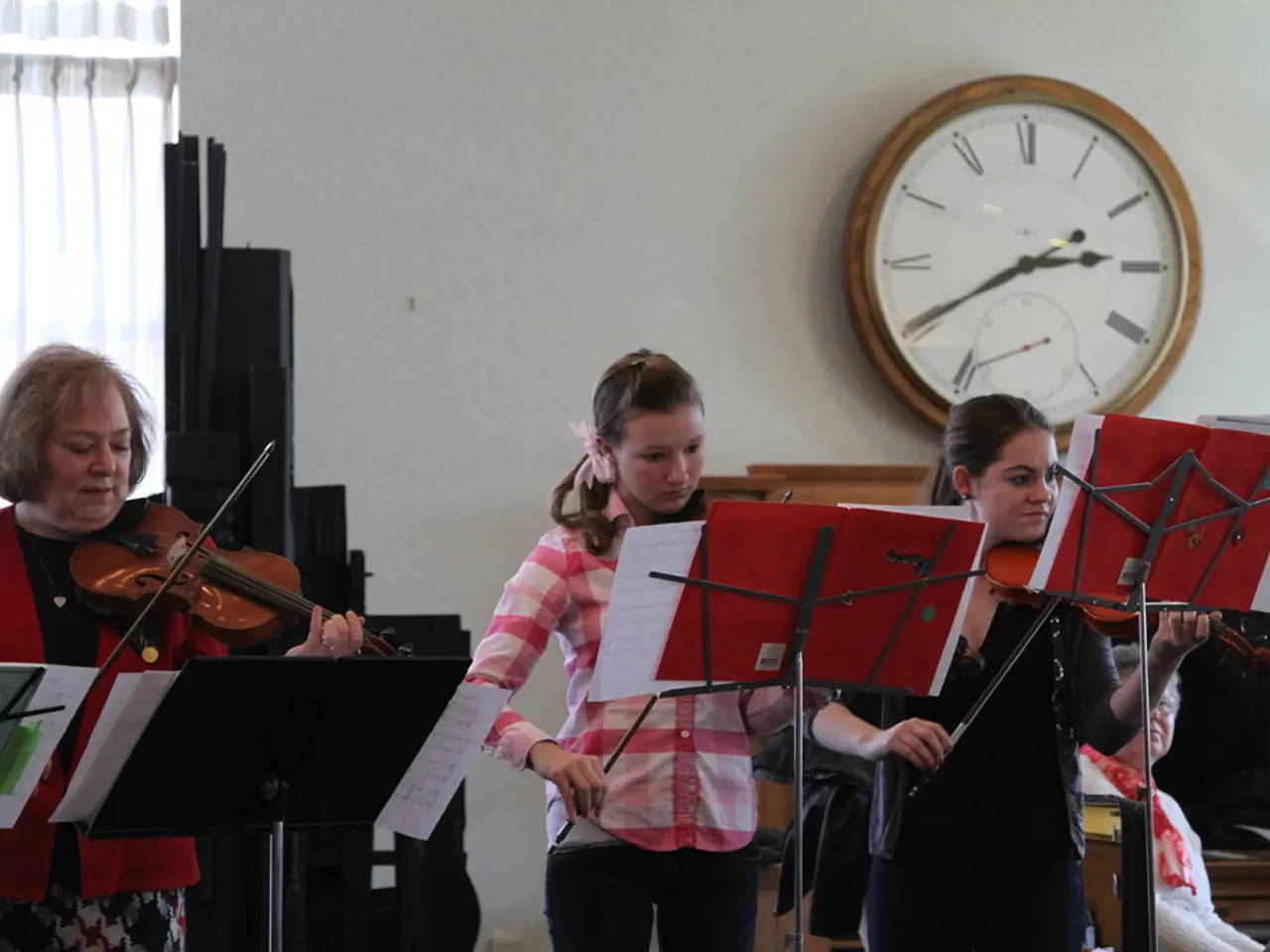Public financing recipients should abstain from expressing gender preferences
In a move that has sparked controversy across Germany, Culture Minister Wolfram Weimer has instructed state authorities to refrain from using "grammatically incorrect gender language" in official communication. This directive, issued towards the end of 2022, extends to publicly funded institutions such as museums, foundations, and broadcasting agencies.
Weimer's ban specifically targets gender-inclusive forms that use plurals with asterisks or other non-standard characters. His department has already refrained from using such special characters in favour of linguistic clarity, legal unambiguity, and general comprehensibility. Institutions that do not comply may risk losing relevant financial funds.
The minister justifies this ban by arguing that language is not a playground and expresses concerns about preserving the "beauty" of the German language while criticising what he sees as divisive social language policies. However, critics argue that this move disregards efforts to promote gender equality and inclusivity in language.
Some ministries and federal agencies have resisted adopting such a gender language ban, with no other federal ministry planning to follow suit. This fragmented response within government highlights the divisive nature of the issue.
Weimer's background as a conservative journalist and publisher, and his recent appointment in May 2025 as Culture Minister in Friedrich Merz’s government, which has itself been characterized by a conservative stance on cultural and social policies, has added fuel to the debate.
The controversy has also attracted criticism from various quarters. The German Journalists' Association opposes Weimer's initiative, stating it interferes with broadcasting freedom. Sven Lehmann, the chairman of the Culture Committee in the Bundestag, has criticised Weimer's initiative, calling him a "missionary culture warrior." Misbah Khan, the deputy leader of the Green parliamentary group, sees an "implicit threat" in Weimer's statements, believing it is an attack on the freedom of art and culture and an attempt to discipline critical voices.
The issue has even extended beyond Germany's borders, with Bavaria following with a ban on "gender language with special characters for gender specification" in authorities in spring 2024.
Despite the controversy, Weimer remains firm in his belief that language should unite, not divide. He rejects any paternalistic language education, stating that enforced gendering does not reflect how the majority in Germany speaks and deepens a societal divide.
In summary, Weimer's ban on gender-inclusive language in publicly funded institutions is a contentious issue in Germany. Supporters see it as a protection of linguistic tradition, while opponents view it as a regressive step against gender inclusivity. The debate continues, with limited adoption outside Weimer's own authority.
[1] The Local [2] Deutsche Welle [3] The Guardian [4] BBC News
- This policy-and-legislation initiative by Culture Minister Wolfram Weimer, restricting the use of gender-inclusive language in officially funded institutions, has stirred up political controversy, with critics labeling it as a regressive step against gender inclusivity.
- The ongoing debate surrounding Weimer's policy-and-legislation to ban gender-inclusive language in official communication is attracting attention not only in general-news outlets across Germany but also on an international scale, as evidenced by Bavaria's adoption of a similar policy in spring 2024.






